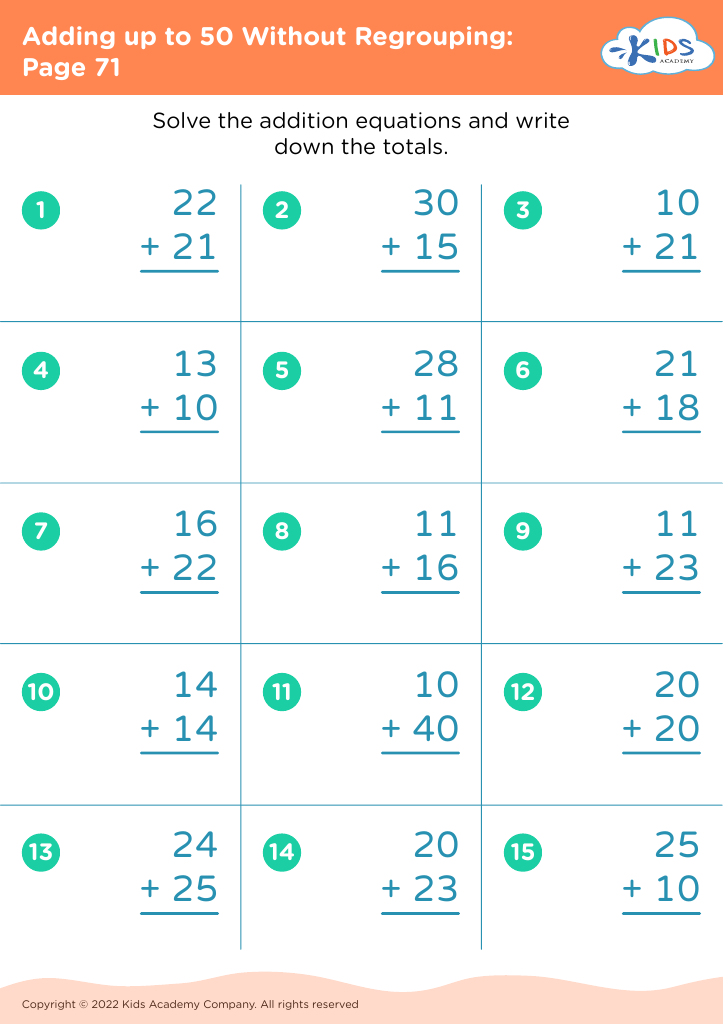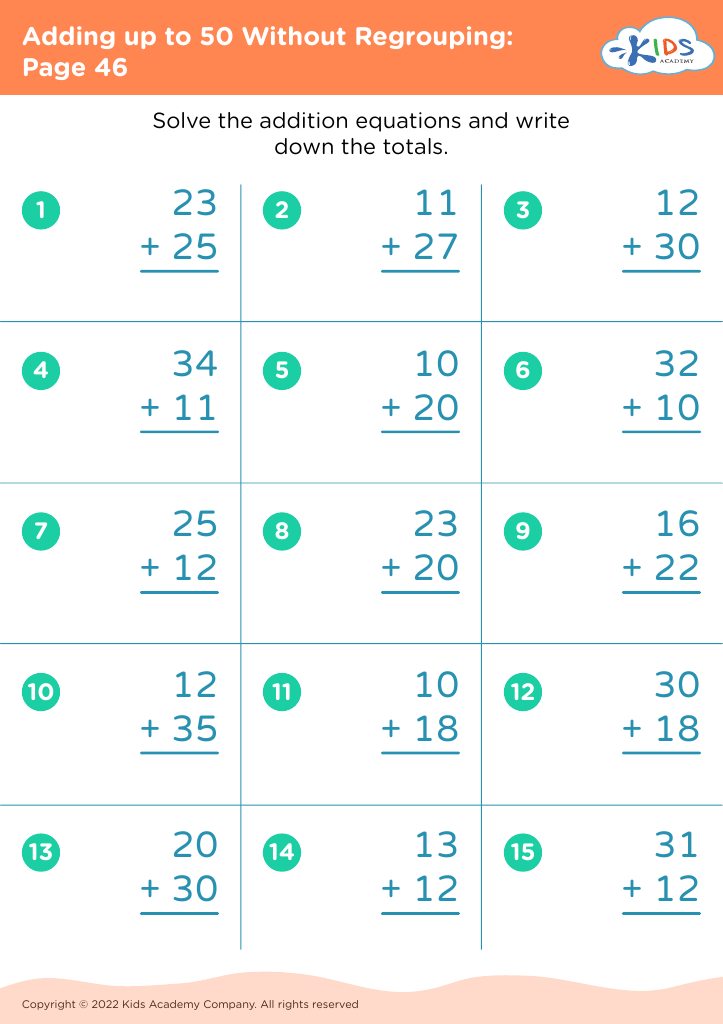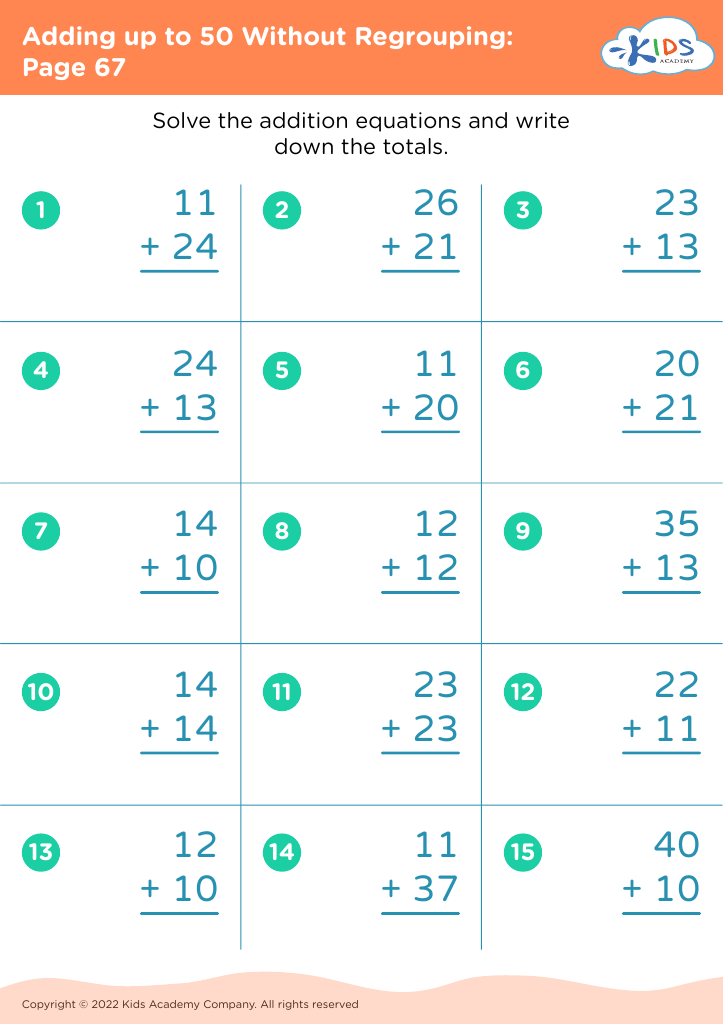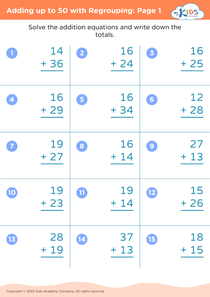Counting practice Adding up to 50 Without Regrouping Worksheets for Ages 5-8
5 filtered results
-
From - To
Enhance your child's counting skills with our "Counting Practice: Adding Up to 50 without Regrouping Worksheets." Tailored for ages 5-8, these worksheets offer engaging and educational activities designed to help kids master addition up to 50. With vibrant visuals and easy-to-follow exercises, young learners will build their confidence in math while having fun. Our worksheets focus on foundational math skills, setting the stage for future success in more complex arithmetic. Perfect for both classroom and home use, provide your child with the tools they need to excel in counting and basic addition without regrouping.
Counting practice and addition up to 50 without regrouping for ages 5-8 is crucial for several reasons. At this age, children's brains are highly receptive to learning foundational mathematical concepts. By mastering basic counting and addition, kids develop essential number sense, which is the ability to understand numbers and their relationships.
First, these skills improve cognitive development. Simple addition helps enhance memory and attention span, key areas for academic growth. Secondly, early math skills are strongly linked to future academic achievement. Strength in basic arithmetic sets the stage for more complex math concepts they'll encounter later.
Furthermore, counting practice encourages problem-solving and critical thinking. When children are confident in their ability to add numbers, they’re better equipped to tackle everyday problems. It also promotes a positive attitude towards mathematics. Early success in math builds confidence, making kids more likely to engage with and enjoy the subject.
Lastly, this practice develops fine motor skills and coordination through activities like writing numbers and using manipulatives. Real-life applications, such as counting apples or toys, make learning tangible and meaningful, fostering an active curiosity about the world around them. Overall, early counting and addition practices form the bedrock of a well-rounded educational foundation.


















